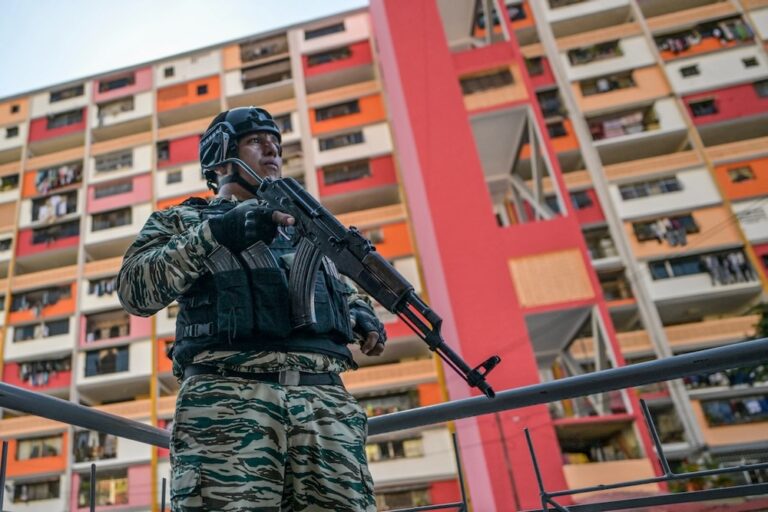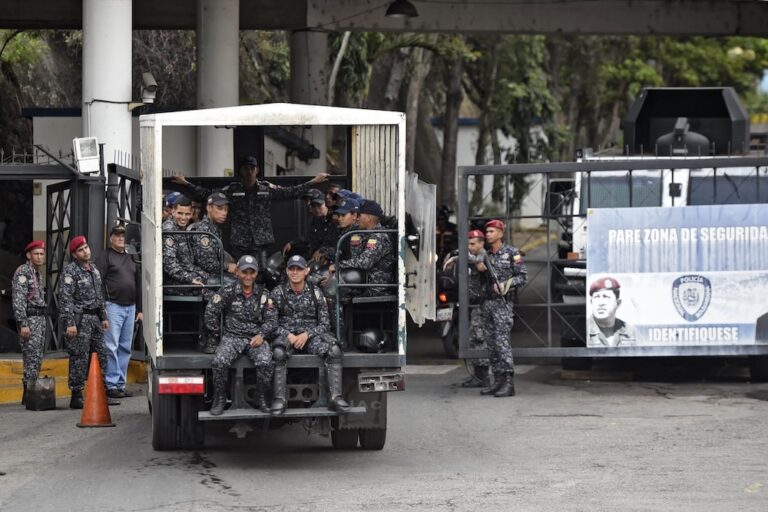The international press has largely shifted its focus away from Venezuela, but government repression has continued in less conspicuous forms.
The February opposition protests in Venezuela captured the attention of international media as over 3,000 people were detained, the death toll exceeded 40, and dozens of torture cases came to light. In a May 5 report, Human Rights Watch documented 45 cases in which security forces had violated protesters’ right to assembly, and the International Crisis Group called for the Venezuelan government to respect human rights as violence continued to surge.
In addition to shedding light on the dire human rights conditions in the country, the protests exposed many of the deeply rooted weaknesses of the Venezuelan government. Since the April 2013 presidential election, in which Nicolás Maduro barely secured a majority of the popular vote (and the legitimacy of even those results was contested), he has struggled to preserve control in the context of high crime rates, food shortages, currency devaluations, and rising inflation. With its public support slipping, the government has resorted to repression to silence criticism, rather than adopting policies that would assuage the underlying social, economic, and political tensions. The result has been chaos and instability.
While the protests have diminished in recent months, this should not be interpreted by the international community as a sign that all is quiet on the Venezuelan front. Ongoing political persecution and the government’s disregard for civil liberties—both during and after the February protests—require substantial attention, especially in light of the government’s failure to address the grievances that brought citizens to the streets in the first place.
The international press has largely shifted its focus away from Venezuela, but government repression has continued in less conspicuous forms. A prime example is the detention of opposition politician Leopoldo López, who was initially arrested in February on charges of murder and conspiracy against the government. His trial has been postponed at least three times, most recently on August 13. On July 29, López’s lawyer submitted a formal complaint to the UN Special Rapporteur on Torture and Other Cruel, Inhumane, and Degrading Treatment, highlighting the mistreatment of his client, who is being held in solitary confinement and has been denied visitors and meetings with his attorney.
While López’s case has received media attention, his story is not unique. To date, 76 individuals remain imprisoned for political reasons, mostly without proper charges; many have been victims of torture. Amnesty International’s report on the protests highlights many emblematic cases of detention and human rights violations, including that of a 21-year-old student who was beaten and threatened by members of the National Guard. Similar stories have been reported by a wide variety of civil society organizations and international media outlets. Despite reports by the well-known human rights organization Provea, outlining evidence that approximately 47 percent of repressive actions were committed by the National Guard, the government has been unwilling to take any responsibility, and the country’s Public Ministry has failed to establish culpability in deaths that occurred during the protests. Cases of torture against students remain uninvestigated.
Intermittent protests continue throughout the country, and continue to be met with repressive action. A labor demonstration in the state of Bolívar on August 12 triggered clashes between protesters and the National Guard, ending in hundreds of injuries and approximately 12 detentions. Maduro recently announced the purchase of new antiriot equipment, indicating that more violence could be imminent.
The ongoing arbitrary detentions, which violate due process and the right to free assembly, represent a serious challenge to the rule of law and human rights in Venezuela, and they cannot remain unaddressed or ignored. The violations not only contribute to a sense of uncertainty and instability in the country, but illustrate a state policy of repression that shows no sign of letting up, even as protest manifestations slow down. The root causes that spurred the protests will continue to fuel unrest, and the state will most likely respond with the authoritarian tactics that have become almost institutionalized in recent months.
International pressure was needed during the protests to compel the government to negotiate with opposition forces, and it is needed now to ensure that the Venezuelan authorities reevaluate the country’s path before conditions deteriorate any further.


